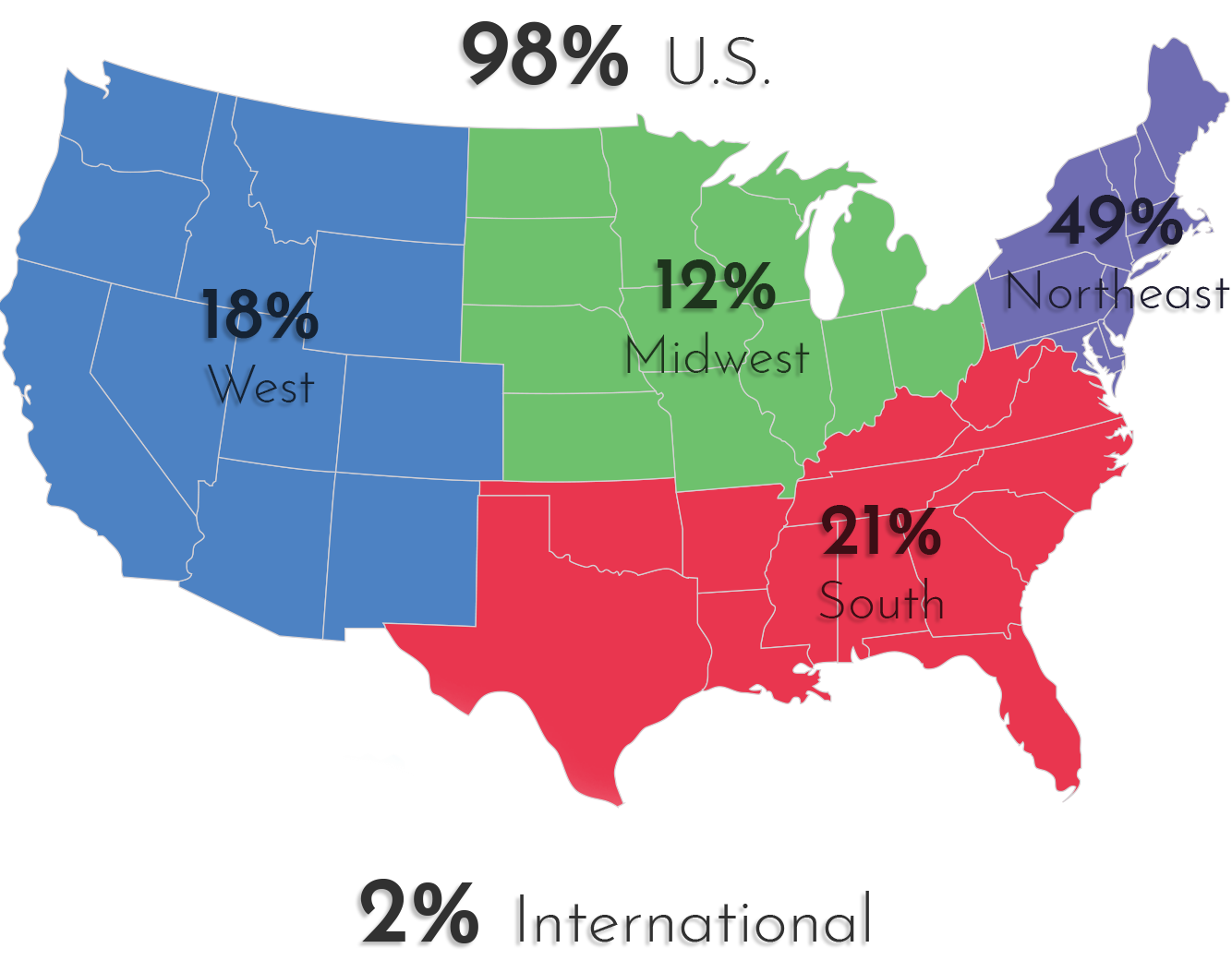Breakdown by Gender

More than
10,000
alumni
Read about RIT/NTID alumni making a big impact and keep up with the latest news and events.
Breakdown by Geographic Region


37%
of RIT/NTID students are eligible for Pell Grants
Growing Diversity
50%
of RIT/NTID deaf and hard-of-hearing students identify as AALANA












